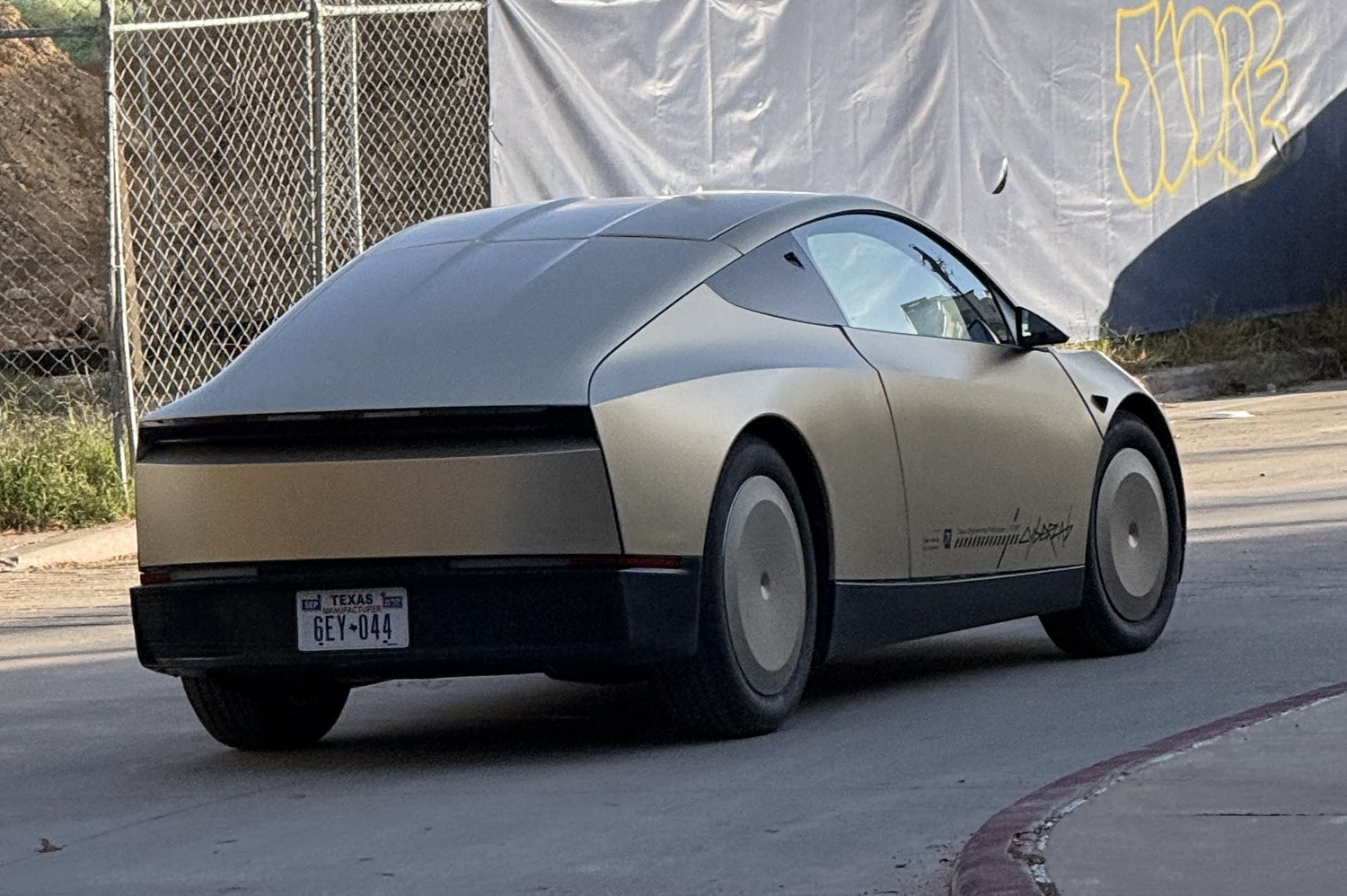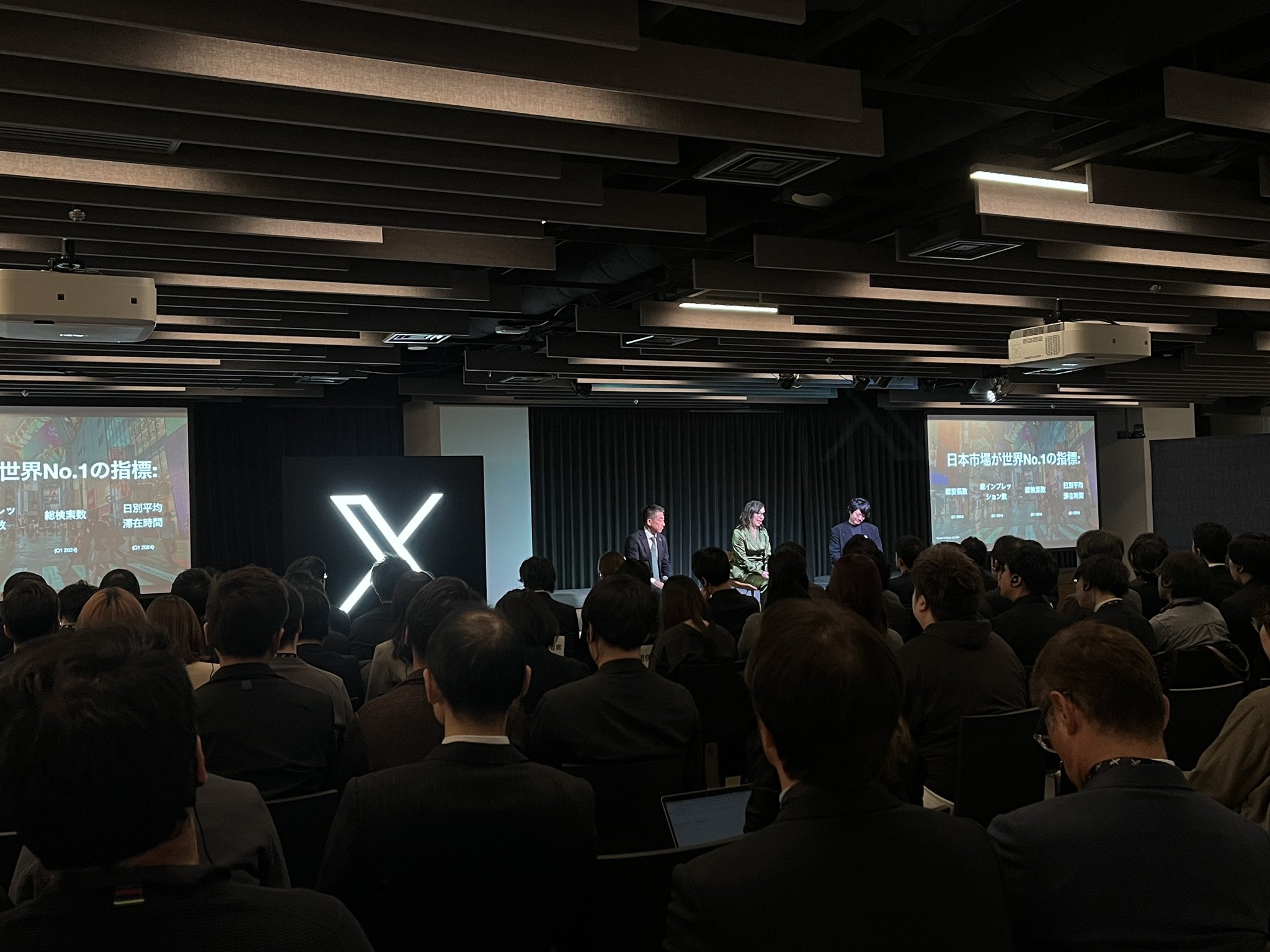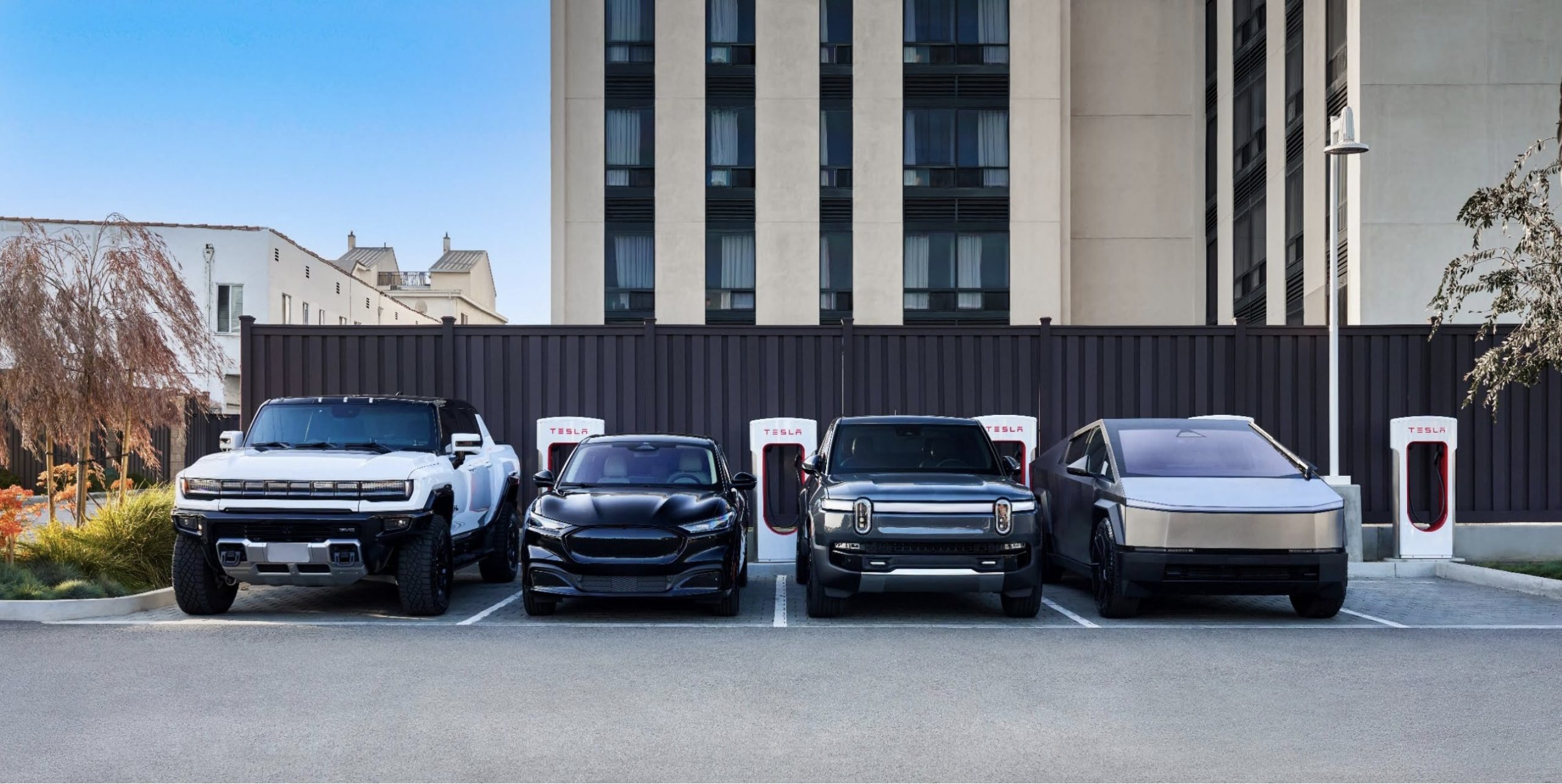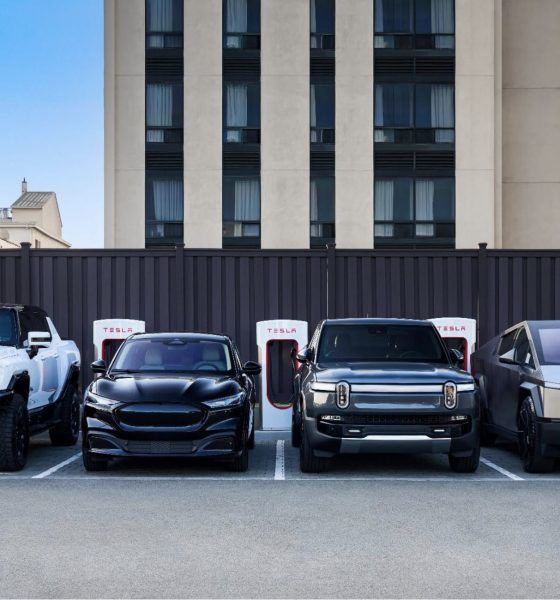U.S. President Donald Trump formally launched tariffs on imports from Canada, Mexico, and China over the weekend, a decision that is widely expected to have sweeping implications for Tesla, other automakers, and a broad range of other industries.
The Trump administration announced the news on Saturday, effectively establishing a 25-percent tariff on Canadian and Mexican imports as well as a 10-percent tariff on products from China. The tariffs will go into effect on Tuesday, and they have already caused ripple effects and a larger trade war with some of the companies.
Canada Prime Minister Justin Trudeau and Mexico President Claudia Sheinbaum spoke on the phone over the weekend, and while Sheinbaum hasn’t yet formalized or disclosed plans for counter-tariffs, Trudeau announced some on Saturday evening, according to Reuters. In the announcement, the Prime Minister said that Canada with also establish a 25-percent tariff on $155 billion worth of products from the U.S.
Trudeau has said that the government will release an updated list of products and tariff details, though the initial list included products such as certain appliances, beer, wine, lumber and other goods. He also says that the government plans to start with $30 billion on Tuesday, as followed by the additional $125 billion later this month.
The Trump administration says the tariffs are aimed at “addressing an emergency situation” related to the import of illegal drugs including fentanyl, along with pointing the blame at illegal immigrants.
“President Trump is taking bold action to hold Mexico, Canada, and China accountable to their promises of halting illegal immigration and stopping poisonous fentanyl and other drugs from flowing into our country,” the White House writes on its fact sheet dedicated to the order.
You can see the full fact sheet from the White House here, or check out the full executive order here.
Tesla joins group of automakers suing EU for EV tariffs from China-built cars
READ MORE ON U.S. PRODUCTION: Tesla Texas lithium refinery produces its first spodumene
Trump follows up, auto workers weigh in on how tariffs will affect the industry
On Sunday, Trump also followed up with a post on his Truth Social account in response to criticism:
The USA has major deficits with Canada, Mexico, and China (and almost all countries!), owes 36 Trillion Dollars, and we’re not going to be the “Stupid Country” any longer. MAKE YOUR PRODUCT IN THE USA AND THERE ARE NO TARIFFS! Why should the United States lose TRILLIONS OF DOLLARS IN SUBSIDIZING OTHER COUNTRIES, and why should these other countries pay a small fraction of the cost of what USA citizens pay for Drugs and Pharmaceuticals, as an example? THIS WILL BE THE GOLDEN AGE OF AMERICA! WILL THERE BE SOME PAIN? YES, MAYBE (AND MAYBE NOT!). BUT WE WILL MAKE AMERICA GREAT AGAIN, AND IT WILL ALL BE WORTH THE PRICE THAT MUST BE PAID.
Following a repost of Trump’s words on X, community notes pointed to a TD Economics saying that the U.S. has had a trade surplus with Canada for the last sixteen years straight when not including the energy sector, or oil, natural gas and electricity.
Multiple others have weighed in on how the tariffs could affect the industry at large, highlighting the potential for price increases for the consumer, potential layoffs, and some even saying that it will shut the auto industry down altogether.
In a report from Bloomberg on Sunday, Flavio Volpe, the President of the Canada Automotive Parts Manufacturers’ Association, said that he doesn’t think the country’s auto parts makers will be able to remain profitable with the tariffs in place.
“The auto sector is going to shut down within a week,” Volpe said. “At 25 percent, absolutely nobody in our business is profitable by a long shot.”
Others have warned of even more immediate effects, especially for Canadian and Mexican cities and states whose communities rely heavily on automotive manufacturing. One such city includes Windsor, Ontario, where John D’Agnolo, the union president of a local Ford factory there, says substantial numbers of layoffs could be imminent.
“We’re talking about thousands and thousands of jobs being lost,” D’Agnolo said. “We’d truly be a ghost town, here in Windsor, if we lost this type of business.”
Ontario Premier Doug Ford has also warned that it could affect as many as 500,000 jobs across the province, which is Canada’s most populated, with many of those being automotive roles.
Many also expect the increased costs to be passed onto the consumer, though it’s still unclear exactly what the repercussions of the tariffs could be. We could also see businesses absorb some or all of these costs, though some initial research seems to suggest that buyers will see higher sticker prices across the industry.
“It is going to be a lot of impact,” Aruna Anand, chief executive officer of parts supplier Continental AG’s North American business, said in an interview. “The question is who is absorbing the price and it becomes, are we able to absorb that price or is it going to be shifted to the end consumer?”
In a separate report from Reuters on Saturday, it was suggested that automakers such as General Motors (GM) and Toyota could, however, shift more production from overseas factories to those in the U.S., while major aluminum manufacturer Alcoa is considering re-routing plans that could potentially reduce tariffs. Many electric vehicle (EV) battery materials also come from metal mining operations in China, with some of these sectors just beginning to emerge domestically.
Others also report that the move could “undermine competitiveness” in the American auto industry, ultimately increasing the cost of building cars in the U.S.
“Our American automakers … should not have their competitiveness undermined by tariffs that will raise the cost of building vehicles in the United States and stymie investment in the American workforce,” says Matt Blunt, the President of the American Automotive Policy Council, which represents Stellantis, GM and Ford.
During Tesla’s Q4 earnings call last week, Chief Financial Officer Vaibhav Taneja also warned that tariffs could affect profitability for the company, since its all of its production facilities utilize parts from around the globe.
“There’s a lot of uncertainty around tariffs,” Taneja said. “Over the years, we’ve tried to localize our supply chain in every market, but we are still very reliant on parts from across the world for all our businesses. Therefore, the imposition of tariffs, which is very likely, will have an impact on our business and profitability.”
It’s still not quite clear at this time how the tariffs may affect Tesla’s prices. While Tesla has regularly advertised having the “most American-made cars” with final assembly for the market taking place at its factories in Texas and California, the company also gets a significant amount of components from Canada.
In a filing with the National Highway Traffic Safety Administration (NHTSA) in October, Tesla did disclose what percentage of its vehicle parts are made in either Canada or the U.S., as compared to other countries such as Mexico and Japan. Some of the figures also don’t disclose where the remaining amounts come from, though they can give users an idea of how many components come from Mexico compared to either the U.S. or Canada.
You can see that data for Tesla’s vehicles below, though it’s also worth noting that it does not show the ratio of U.S. to Canadian parts—just a combined percentage from the two countries. You can also view the full filing from the NHTSA here.
- Cybertruck: 65 percent from U.S. and Canada; 25 percent from Mexico
- Model 3 Long Range: 75 percent from U.S. and Canada; 20 percent from Mexico
- Model 3 Performance: 70 percent from U.S. and Canada; 20 percent from Mexico
- Model Y (all trims): 70 percent from U.S. and Canada; 25 percent from Mexico
- Model S: 65 percent from U.S. and Canada; 20 percent from Mexico
- Model X: 60 percent from U.S. and Canada; 25 percent from Mexico
What are your thoughts? Let me know at zach@teslarati.com, find me on X at @zacharyvisconti, or send us tips at tips@teslarati.com.
Tesla Mexico nearshoring concerns brought up by CMIC presidential candidate
Need accessories for your Tesla? Check out the Teslarati Marketplace:

Elon Musk
Elon Musk doubles down on Tesla Cybercab timeline once again
“Cybercab, which has no pedals or steering wheel, starts production in April,” Musk said.

CEO Elon Musk doubled down once again on the timeline of production for the Tesla Cybercab, marking yet another example of the confidence he has in the company’s ability to meet the aggressive timeline for the vehicle.
It is the third time in the past six months that Musk has explicitly stated Cybercab will enter production in April 2026.
On Monday morning, Musk reiterated that Cybercab will enter its initial manufacturing phase in April, and that it would not have any pedals or a steering wheel, two things that have been speculated as potential elements of the vehicle, if needed.
Cybercab, which has no pedals or steering wheel, starts production in April https://t.co/yShxZ2HJqp
— Elon Musk (@elonmusk) February 16, 2026
Musk has been known to be aggressive with timelines, and some products have been teased for years and years before they finally come to fruition.
One of perhaps the biggest complaints about Musk is the fact that Tesla does not normally reach the deadlines that are set: the Roadster, Semi, and Unsupervised Full Self-Driving suite are a few of those that have been given “end of this year” timelines, but have not been fulfilled.
Nevertheless, many are able to look past this as part of the process. New technology takes time to develop, but we’d rather not hear about when, and just the progress itself.
However, the Cybercab is a bit different. Musk has said three times in the past six months that Cybercab will be built in April, and this is something that is sort of out of the ordinary for him.
In December 2025, he said that Tesla was “testing the production system” of the vehicle and that “real production ramp starts in April.
Elon Musk shares incredible detail about Tesla Cybercab efficiency
On January 23, he said that “Cybercab production starts in April.” He did the same on February 16, marking yet another occasion that Musk has his sights set on April for initial production of the vehicle.
Musk has also tempered expectations for the Cybercab’s initial production phase. In January, he noted that Cybercab would be subjected to the S-curve-type production speed:
“…initial production is always very slow and follows an S-curve. The speed of production ramp is inversely proportionate to how many new parts and steps there are. For Cybercab and Optimus, almost everything is new, so the early production rate will be agonizingly slow, but eventually end up being insanely fast.”
Cybercab will be a huge part of Tesla’s autonomous ride-sharing plans moving forward.
Elon Musk
Tesla owners explore potential FSD pricing options as uncertainty looms
We asked Tesla owners what the company should price Full Self-Driving moving forward, as now it’s going to be subscription-based. There were some interesting proposals.

Tesla is starting the process of removing the ability to purchase the Full Self-Driving suite outright, as it pulled the purchase option in the United States over the weekend.
However, there has been some indication by CEO Elon Musk that the price of the subscription will increase as the suite becomes more robust. But Tesla finds itself in an interesting situation with this: the take rate for Full Self-Driving at $99 per month is about 12 percent, and Musk needs a significant increase in this rate to reach a tranche in his new compensation package.
This leaves Tesla and owners in their own respective limbos: Tesla needs to find a price that will incentivize consumers to use FSD, while owners need Tesla to offer something that is attractive price-wise.
We asked Tesla owners what the company should price Full Self-Driving moving forward, as now it’s going to be subscription-based. There were some interesting proposals.
Price Reduction
Although people are willing to pay the $99 per month for the FSD suite, it certainly is too high for some owners. Many suggested that if Tesla would back down the price to $49, or somewhere around that region, many owners would immediately subscribe.
Others suggested $69, which would make a lot of sense considering Musk’s obsession with that number.
Different Pricing for Supervised and Unsupervised
With the release of the Unsupervised version of Full Self-Driving, Tesla has a unique opportunity to offer pricing for different attention level requirements.
$50/mo for supervised.
$300/mo for unsupervised including insurance.— pɦoɿɟ pᴉʌɒp (@CSUDavid) February 15, 2026
Unsupervised Full Self-Driving would be significantly more expensive, but not needed by everyone. Many people indicate they would still like to drive their cars manually from time to time, but others said they’d just simply be more than okay with only having Supervised FSD available in their cars.
Time-Based Pricing
Tesla could price FSD on a duration-based pricing model, including Daily, Weekly, Monthly, and Annual rates, which would incentivize longer durations with better pricing.
Annually, the rate could be $999 per year, while Monthly would stay at $99. However, a Daily pass of FSD would cost somewhere around $10, while a $30 per week cost seems to be ideal.
These all seem to be in line with what consumers might want. However, Tesla’s attitude with FSD is that it is the future of transportation, and with it offering only a Monthly option currently, it does not seem as if it will look as short-term as a Daily pass.
Tiered Pricing
This is perhaps the most popular option, according to what we’ve seen in comments and replies.
This would be a way to allow owners to pick and choose which FSD features they would like most and pay for them. The more features available to you, the more it costs.
For example, if someone only wanted Supervised driving and Autopark, it could be priced at $50 per month. Add in Summon, it could be $75.
This would allow people to pick only the features they would use daily.
Elon Musk
Elon Musk’s X sees outage on Monday as users report issues
Monday’s outage follows a similar issue that befell the social media platform in mid-January.

X experienced an outage on Monday morning, with tens of thousands of users reporting that the platform failed to load across both desktop and mobile. The disruption began around 8:02 a.m. ET, as per Downdetector data, and quickly escalated in the U.S. and U.K.
Monday’s outage follows a similar issue that befell the social media platform in mid-January.
Shortly after 8 a.m. ET, Downdetector showed a sharp rise in incident reports. At one point, U.S. complaints exceeded 40,000, while U.K. reports climbed past 6,000. Earlier in the outage, filings had already crossed 11,000 in the U.S. and 3,300 in the U.K., as noted in a TechRadar report. X users in other locations, such as the Philippines and Costa Rica, also reported similar issues.
Users attempting to access X were met with a “something went wrong” message. Feeds did not refresh, posts failed to appear, and both the social media platform’s app and web versions appeared affected by the issue. The outage struck during peak weekday usage, amplifying its visibility across regions worldwide.
X has not issued an official explanation for the latest outage or confirmed what caused the service disruption. The scale of complaints drew comparisons to the platform’s major outage in November 2025, which resulted in users being met with “Internal server error / Error code 500” messages, as well as Cloudflare-related error notices.
The incident also comes just weeks after X experienced a similar downtime in mid-January. That outage seemed more notable, however, with more than 100,000 users reporting issues with the social media platform on Downdetector.










